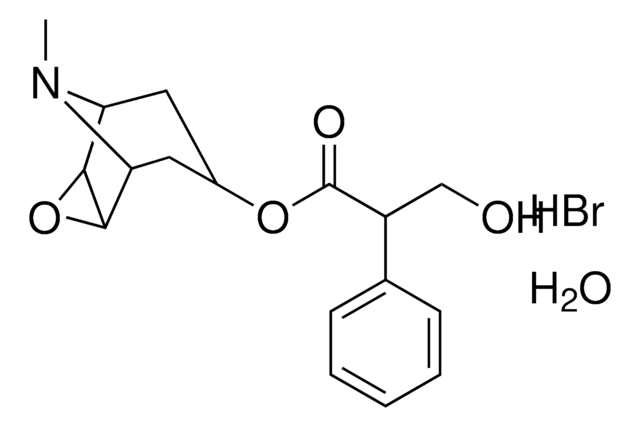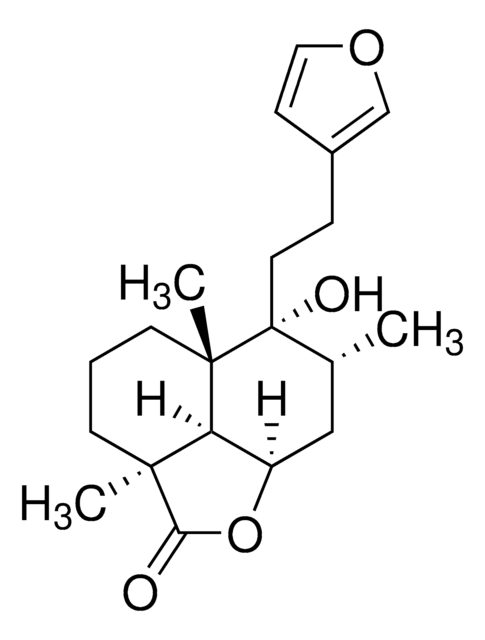PHR1470
Scopolamine Hydrobromide
Pharmaceutical Secondary Standard; Certified Reference Material
Synonym(s):
Scopolamine hydrobromide
About This Item
Recommended Products
grade
certified reference material
pharmaceutical secondary standard
Quality Level
Agency
traceable to BP 199
traceable to Ph. Eur. H1500000
traceable to USP 1610001
API family
scopolamine, hyoscine
CofA
current certificate can be downloaded
packaging
pkg of 500 mg
technique(s)
HPLC: suitable
gas chromatography (GC): suitable
application(s)
pharmaceutical (small molecule)
format
neat
storage temp.
2-30°C
InChI
1S/C17H21NO4.BrH/c1-18-13-7-11(8-14(18)16-15(13)22-16)21-17(20)12(9-19)10-5-3-2-4-6-10;/h2-6,11-16,19H,7-9H2,1H3;1H/t11-,12-,13-,14+,15-,16+;/m1./s1
InChI key
WTGQALLALWYDJH-MOUKNHLCSA-N
Gene Information
human ... CHRM1(1128)
General description
Application
Analysis Note
Other Notes
Footnote
related product
Signal Word
Danger
Hazard Statements
Precautionary Statements
Hazard Classifications
Acute Tox. 1 Dermal - Acute Tox. 2 Inhalation - Acute Tox. 2 Oral
Storage Class Code
6.1A - Combustible acute toxic Cat. 1 and 2 / very toxic hazardous materials
WGK
WGK 1
Flash Point(F)
Not applicable
Flash Point(C)
Not applicable
Choose from one of the most recent versions:
Already Own This Product?
Find documentation for the products that you have recently purchased in the Document Library.
Customers Also Viewed
Our team of scientists has experience in all areas of research including Life Science, Material Science, Chemical Synthesis, Chromatography, Analytical and many others.
Contact Technical Service










